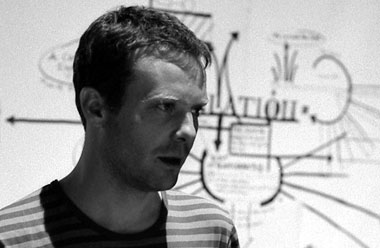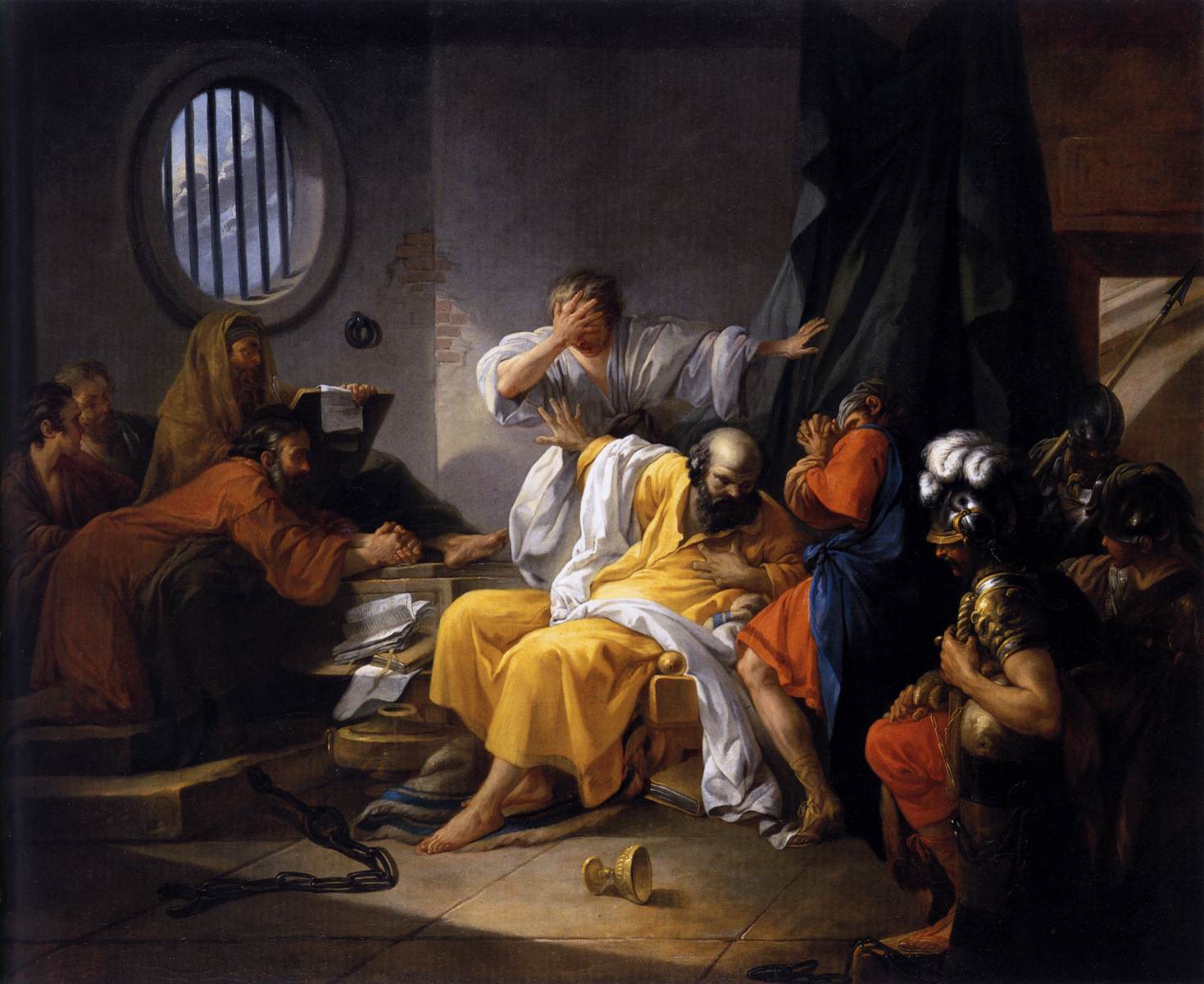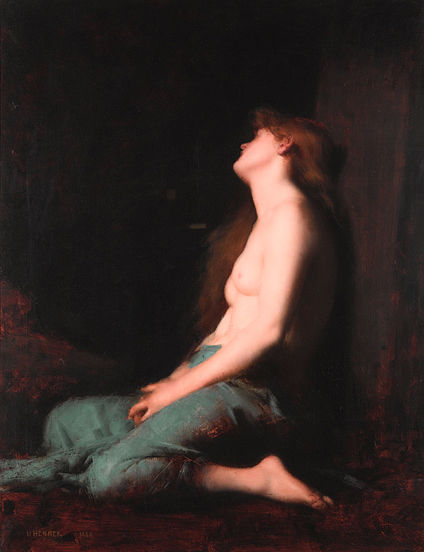
How then to wrap this theme post on
Synecdoche, New York and
Remainder. We rail against vagueness in fiction, against fiction written at a remove, distanced from character. Unfocused. We don't really care how much anomie or drift or lassitude a protagonist has, she is never insensate (unless, of course, she is and that is a prominent plot point and theme). Write with precision. Be detailed and specific. It's harder, frankly, especially when you're trying to move the story along. It is the demand of art.
If you stop at "I liked the book because I could identify with the protagonist" or "I bonded with the protagonist and wanted to get to know him better," you miss the serious fictional exercise as to character. Complexity is key. And this is achieved by close in writing: details. A vague nice guy is really not very interesting: dull.
This is not to say we take a position with respect to the great "realism" dialogue in which Zadie Smith and James Wood (Dan Greene, Nigel Beale, Edmund Caldwell, Steven Augustine, et al.) are engaged. We are agnostic with respect to realism. What must be real in the fiction is what is real to the character. This is conveyed through the detailed, artistic use of language. etc., etc.
Back to our topic. Let's take a look at the titles: 'Synecdoche' is a form of metonymy in which either the part stands for the whole, or the whole for the part. Some familiar examples:
• Give us this day our daily bread. (Other food, too.)
• Man cannot live by bread alone. (Neither can woman.)
• Ted Turner owns 40,000 head of bison. (Presumably he owns the rest of their bodies as well.)
• He asked for Mary's hand in marriage. (Again, he probably wanted to wed more than her hand.)
• He drew his weapon. (His sword, his gun, his knife, etc.)
• This election is all about Joe the Plumber. (Indeed.)
A synecdoche is a rhetorical figure. The purpose of rhetoric is to persuade us of something that basic logic cannot do; rhetoric is employed for the purpose of manipulating the emotions or passions when resort to logic and reason simply won't work. It is a means of persuasion. In the movie
Synecdoche, New York, Caden purchases an enormous warehouse to re-enact scenes of his life, a living theater, if you will. As the movie progresses he constructs a warehouse within the warehouse to re-enact what is happening in the main warehouse. And then another one inside that one and so on. We are never quite sure how many there are—though, on principle, a theoretical infinity is conceivable without arriving at truth. The point being, presumably, that each particular staging of a scene stands for the scene from Caden's life.
Of what, we might reasonably ask Charlie Kaufman, is the movie trying to persuade us? Near the end Caden Cotard laments that no play would ever be large enough to enact or re-enact the dreams and hopes and sorrows and secrets of each person in each apartment in the huge city, each one of whom is or wants to be special in his or her own right to someone else. We will simply have to make do with Charlie's, er, Caden's. The closer we get to the dreams and secrets of one man—the particular—the closer we get those of everyone—the universal: synecdoche. And that is why "writing in close" is so essential.
The title
Remainder refers ostensibly to the puzzlement the protagonist feels over the half-million pound portion of the eight and half million pound settlement he receives. How did the insurance companies and lawyers determine the damage done to the protagonist was worth that amount? Why the half-million pound remainder? There are plenty of other remainders also: a splinter of knee-cap left from in his leg from an operation, a dent in the fender of his Ford Fiesta. These are the of not the essence, though.
Heraclitus the Ephesian is alleged by Plato to have said one cannot step into the same river twice; the waters keep changing.
Remainder is a literary disquisition on this text. You cannot recapture an experience; there is always something left over, some remainder, that eludes even if you constantly re-enact the events. Something that is lost. What, then, is lost?
As the protagonist keeps trying to perfect his re-enactment of the experience of deja vu, he has another surprising moment at a tire shop. Windshield wiper fluid poured into his car's engine seems miraculously to disappear into thin air and then, to his wonderment and disappointment, gushes out all over him when he starts the engine.
"I lay in my bath looking at the [re-created] crack and thinking about what had happened. It was something very sad—not in the normal sense but on a grander scale, the scale that really big events are measured in, like centuries of history or the death of stars: very, very sad. A miracles seemed to have taken place, a miracle of transubstantiation—in contravention of the very laws of physics, laws that make swings stop swinging and fridge doors catch and large, unsuspended objects fall out of the sky. This miracle, this triumph over matter, seemed to have occurred, then turned out not to have done at all—to have failed utterly, spectacularly, its watery debris crashing down to earth, turning the scene of a triumphant launch into the scene of a disaster, a catastrophe. Yes, it was very sad."
It is the sense of wonder, surprise, the miraculousness of the everyday events, their uniqueness that cannot be captured by re-enactment and, by implication, by art or fiction.
McCarthy's narrative compares this idea of re-enactment to the job of forensic reconstructions of murder scenes by police. These can replay the outlines of events, but can never capture the experience of dying. A black man is shot and killed outside the protagonist's apartment. He becomes obsessed with yet another re-enactment—before the others are even perfected. He pores over forensic reports, puzzles over models of the crimes scene, and, realizing their short-comings, tries to imagine what it was like to be the victim:
"His last words would still have been buzzing around in his head as he left the phone box, and in the head of the person he'd talked to, their conversation only half-decayed at most. Then he'd have caught sight of his killers. Did he know them? If he did, he still might not have known they'd come to kill him—until they took their guns out. At what point had he realized they were guns? Maybe at first he thought they were umbrellas, or steering-wheel locks, or poles. Then when he realized, as his brain pieced it together and came up with a plan of escape, then changed it, he found out that physics wouldn't let him carry out the plan: it tripped him up. Matter again: the world became a fridge door, a broken lighter, two litres of blue goop..."
...
"Why was I so obsessed with the death of this man I'd never met? I didn't stop to ask myself. I knew we had things in common, of course. He'd been hit by something, hurt, laid prostrate and lost consciousness; so had I. We'd both slipped into a place of total blackness, silence, nothing, without memory and without anticipation, a place unreached by stimuli of any kind. He'd stayed on there...
To put my fascination with him all down to our shared experience, though, would only be telling half the story. Less than half. The truth is that, for me, this man had become a symbol of perfection. It may have been clumsy to fall from his bike, but in dying beside the bollards on the tarmac he'd done what I wanted to do: merged with the space around him, sunk and flowed into it until there was no distance between it and him—and merged, too, with his actions, merged to the extent of having no more consciousness of them. He'd stopped being separate, removed, imperfect. Cut out the detour. Then both mind and actions had resolved themselves into pure stasis. The spot that this had happened on was the ground zero of perfection—all perfection: the one he'd achieved, the one I wanted, the one everyone else wanted but just didn't know they wanted and in any case didn't have eight and a half million pounds to help them pursue even if they'd known. It was sacred ground, blessed ground—and anyone who occupied it in the way he'd occupied it would become blessed too. And so I had to re-enact his death: for myself, certainly, but for the world in general as well. No one who understands this could accuse me of not being generous."
He tries, over and over, to re-enact the death of the black man, assuming the victim's role himself, even slowing down the action so he can hone his consciousness of everything around him. Yet, try as he might McCarthy's protagonist cannot die—and retain consciousness and memory of the event—as did the victim of the shooting; though he does go into a sporadic three-day trance. That is as close as he can get. He then seeks to re-enact other murders from the organized crime turf war that is waging around his building (itself a perpetual re-enactment). More re-enactments ensue and the intermittent trances persist.
Let's not lose sight of the meta-fictional point here (though it is by no means the only point). It is not enough merely to identify with the protagonist of the sort of re-enactment we find in fiction, let us say. That is not even half the story; certainly not enough for the writer of fiction to keep up a sustained interest over the time and effort it takes to create a work of fiction. The mind and actions of the fictional protagonist—the victim—must be resolved into pure stasis and the protagonist merged with the space around him. No distance, no detour. As we've been saying, "write in close."
McCarthy's protagonist ponders what it means to be authentic and real and he recalls the point in his life when he felt most real: after having received his windfall settlement, he was emerging from the subway trying to find the office of his stockbroker and began begging for change. He knows he can never re-enact this scene but decides instead to re-enact a bank heist. The same thing writ large.
The "argument" or dialectic, if you will, then moves from an art-imitates-life thesis to a life-imitates-art antithesis. The protagonist and his team rehearse, "pre-enact", the heist meticulously. But, as you might expect, shit happens. All his sense are alive. He tingles with authenticity—the feeling he has spent his considerable fortune trying to recapture. Everything slows down. Then disaster strikes: the intrusion of the miraculous. And everything spins out of control. "The re-enactment was unstoppable. Even I couldn't have stopped it. Not that I wanted to. Something miraculous was happening. ... [someone] whispered: "
It's real!". The tingling really burst its banks now; it flowed outwards from my spine's base and flowed all around my body. Once more I was weightless ... The intensity augmented until all my senses were going off at once."
You must read the remarkable conclusion for yourself.
Some closing comments: It's never quite fair to compare a book to a movie. They serve different purposes to different effects. So we will not do so. That being said, we suspect
Synecdoche, New York will be studied in film schools for some time to come. The script is tight, the scenes focused. The essential love story is coherent and moving, easily satisfying our Ur-story criteria. The main character is closely observed and his plight is compelling. The film has its flaws (as we've indicated above): the time frame is difficult to track and the ending is a bit diffuse. The recapitulated Olive seems to be absent. Moreover, at one point Caden claims he gets "notes" every day from his god and he plays god by giving notes to his re-enactors. We never get any clearer an insight into his motivation for wanting to re-enact certain scenes from his life. Nonetheless we recommend you see this film.
As for
Remainder we've seen the sort of controversy it has generated (the Zadie Smith article, for example). We don't necessarily either agree or disagree with Smith; we have our own somewhat orthogonal view. We are in no position to expound on the future or even the progress of the novel—can one truly say the novel has progressed from, say,
The Anatomy of Melancholy or
Tristram Shandy? We can say McCarthy's work gets at the essence of fiction and once you nail the essentials you prefigure most everything.
Remainder doesn't necessarily point the way forward, but—as with all true prophecy—simply explores the essence of the form.
Remainder, indeed, satisfies our Ur-story criteria. That is to say it responds to the essential human condition while telling a compelling and coherent story. It works at the level of the senses in ways much contemporary fiction fails even to attempt. Its thematic and motifal structures are handled masterfully. But it works as meta-fiction as well. Often meta-fiction forgets to tell a story, much less a compelling one. Here,
Remainder succeeds in revealing its own essence as fiction.
If there is one aspect to critique, it is this: When we looked at Tolstoy's
The Death of Ivan Ilych, we discussed the preachy aspects of the good Count's work. Tolstoy employs the novella
The Death of Ivan Ilych as a rhetorical device, a vehicle to convey a piece of moral or religious wisdom he has cadged from such likely sources as Socrates, Jesus, Gautama Siddartha. No doubt his insight was profoundly personal and so intense he felt he needed to share it with the rest of the world, to convince us of its urgency for our lives. The response to his novella is an ethical one, not an aesthetic one. The message overwhelms the vessel. We pose a similar question to Tom McCarthy: Is there an analogous case to be made with respect to
Remainder? Follow me here: in
Remainder does McCarthy's attempt to communicate a metaphysical (as opposed to a moral) point (art ultimately fails to imitate life and likewise is quite incapable of prefiguring it) cast it into the same pile as
The Death of Ivan Ilych? Preachy in a hard-nosed philosophical kind of way? That, as they say, is a horse of a different color, a point we shall no doubt pick up in some later post.














